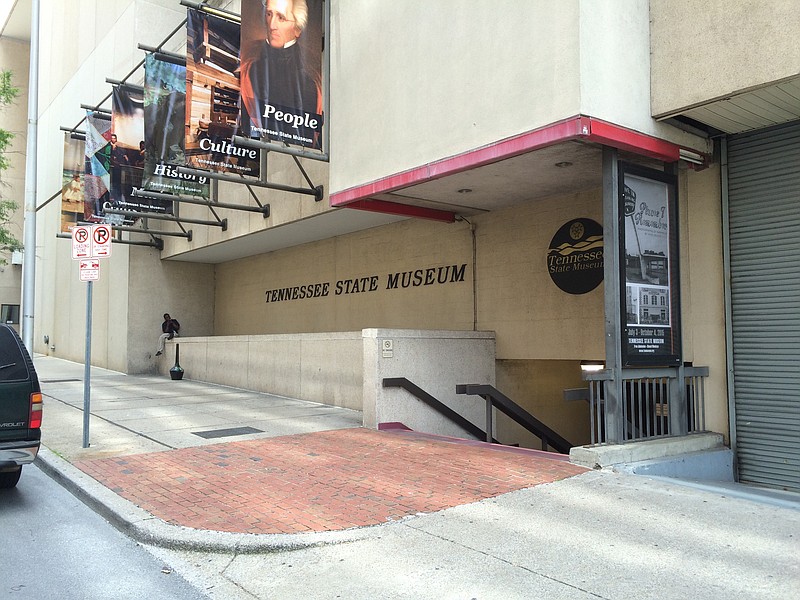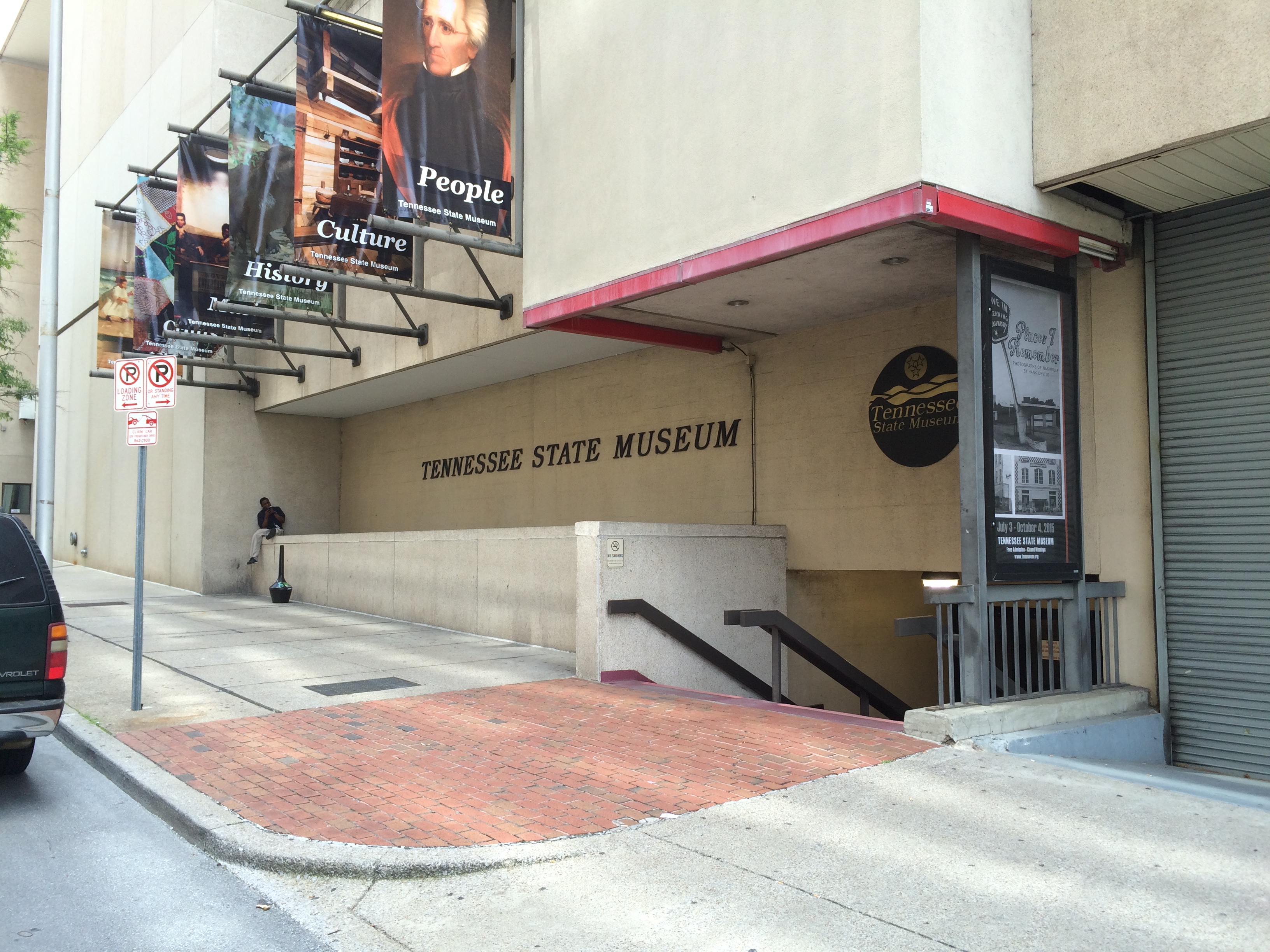NASHVILLE - For more than 30 years, the Tennessee State Museum has huddled in a cramped basement of a state office building under the Tennessee Performing Arts Center and 24 floors of offices.
But this spring, nudged by Gov. Bill Haslam, state lawmakers approved $120 million to build a new museum on the state's Bicentennial Capitol Mall, to be bolstered by a $40 million private fundraising campaign.
The dream is for more space, better displays and easier access to the tens of thousands of Tennessee schoolchildren and other visitors who flock annually to the institution. When the museum's oversight commission meets Monday, members will get their first briefing on plans for the new structure from Haslam Chief of Staff Mark Cate.
The path to this point, however, is proving to be as colorful as some of the Volunteer State's history, including controversies over whether the museum's longtime director engineered the removal of two board members critical of her; whether staff violated acquisition policies or failed to vet a hire later suspected of embezzling $62,000; even the timing of a planned traveling exhibit last year on Lamar Alexander.
Former Knoxville Mayor Victor Ashe, a member of the museum board since its creation in 2010 and its former chairman, is among those who have raised questions about the museum's operations.
"This whole thing comes at an unfortunate time given the $120 million plus $40 million in private money to be raised for a new museum, when it is important that everything be working seamlessly," Ashe said.
Longtime Director Lois Riggins-Ezzell has both supporters and detractors on the institution's governing board, the Douglas A. Henry Museum Commission, and the ancillary State Museum Foundation, which raises money for acquisitions.
One of the ousted board members, attorney Henry Walker, believes Riggins-Ezzell was the reason they were not renominated for new terms. He and Nashville banker Charlie Cook had questioned whether museum officials followed acquisition policies for purchases of some artifacts. That led to new policies.
In 2013 Cook, chairman of the museum commission's collections committee, asked Walker to review several art and artifact purchases. He reported that up to 11 purchases appeared to violate one or more acquisition policies, including lack of prior approval by a three-person committee and lack of "justification letters" required for a purchase of $1,000 or more.
Cook also wrote a memo in December 2013 to Riggins-Ezzell asking whether the staff's purchase of a painting by a Nashville artist who served on the governor's New Museum Task Force may have violated the museum's code of ethics and the acquisition process.
Walker said the chairman of the three-person nominating panel, which included Riggins-Ezzell and External Affairs Director Leigh Hendry, met by telephone and that both "made it very clear that that they did not want Charlie or me renominated."
Walker believes that "at least in part the reason was that Lois believed we had been critical of her failing to follow the museums collection and acquisition policies."
Cook could not be reached for comment.
Chairman Bob Thomas, a Nashville attorney who is a partner of the same firm as Walker, said Walker "has stated it absolutely correctly."
"I wanted them re-elected and my board did not accede to my wishes," Thomas said.
But the chairman of the governing commission, Deputy House Speaker Steve McDaniel, R-Parkers Crossroads, said Riggins-Ezzell "does an excellent job."
"She knows the museum business and she's respected by her peers around the country. She's totally dedicated her life to the museum. And she has a good staff, too," McDaniel said.
On Friday, Riggins-Ezzell told reporters with the Chattanooga Times Free Press and The Commercial Appeal in Memphis she "did not argue either way" on Cook's and Walker's renomination.
"I simply listened to the arguments. I think that either one of those gentlemen could have easily continued to serve had it been the wish of the board," she said. Both men, she added, were "concerned board members (who) monitored carefully what they felt was appropriate or inappropriate."
But Riggins-Ezzell, who became museum director in 1981, added that a "board needs to be an advocate for the agency" and said Cook and Walker were "consistently critical."
"I had a board that believed in this museum, believed in its vision 100 percent," she added. "I had no dissenters on that board, I had no one that didn't believe in what we were doing and as some new people were added from time to time, there was some dissension. And that is not productive.
"If you've got 90 percent that believes in the management and the vision and you have 2 percent that doesn't believe that strongly, is it better to get rid of the 90 or 98 percent that does believe and has been there 10, 15, 20 and 25 years or the 1 percent that's been there a year or two years, that has come in with a new vision that may not have been the vision embraced in the past?"
Meanwhile, it remains to be seen whether Davidson County prosecutors will pursue charges against a former administrative services assistant who state auditors last year alleged took nearly $62,000 in taxpayer money from the museum. That included $49,477 through what auditors called "phony invoice payments" for artifacts to a fictitious company she set up and $12,416 for a rental car billed to the museum for 15 months.
The woman had been hired through a temp agency and museum staff didn't know she had been convicted of theft, the comptroller's office said. Riggins-Ezzell's staff discovered problems and asked for the investigative audit.
The audit cited the museum for an "internal control and compliance deficiency" for failing to reconcile whether items were received for 26 falsified invoices. Riggins-Ezzell agreed with the findings and told auditors her staff was taking appropriate steps.
Also last year, the museum scrapped plans for a traveling exhibit of Lamar Alexander's 1978 gubernatorial race and early swearing-in after criticism that it was coming in the midst of his U.S. Senate re-election campaign.
Riggins-Ezzell, who was appointed by Alexander, said the exhibit was an offshoot of a Vanderbilt University exhibit and the museum got involved at a time when many thought he would not seek re-election. It was rescheduled for this year.
McDaniel recently confirmed there has been talk about bringing someone new aboard to work with Riggins-Ezzell, 75, as the new museum takes shape.
Riggins-Ezzell said Friday she was the first one to mention her replacement.
"I brought it up. I'm certainly reaching retirement age, I think you could satisfactorily say."
She said she is looking at a three- to five-year timeline and "that probably toward the end of my tenure we need to overlap someone with me. I've been here for a long time at the museum. I'm extremely proud of the team we have put together and the track record that we have had."
But, Riggins-Ezzell added, don't think she's no longer on top of her game.
"I can outwork every thirty-something in the building, honey, you just note that."
This article was reported and written by staff writer Andy Sher and Richard Locker of The Commercial Appeal. Contact Sher at asher@timesfreepress.com or 615-255-0550.

